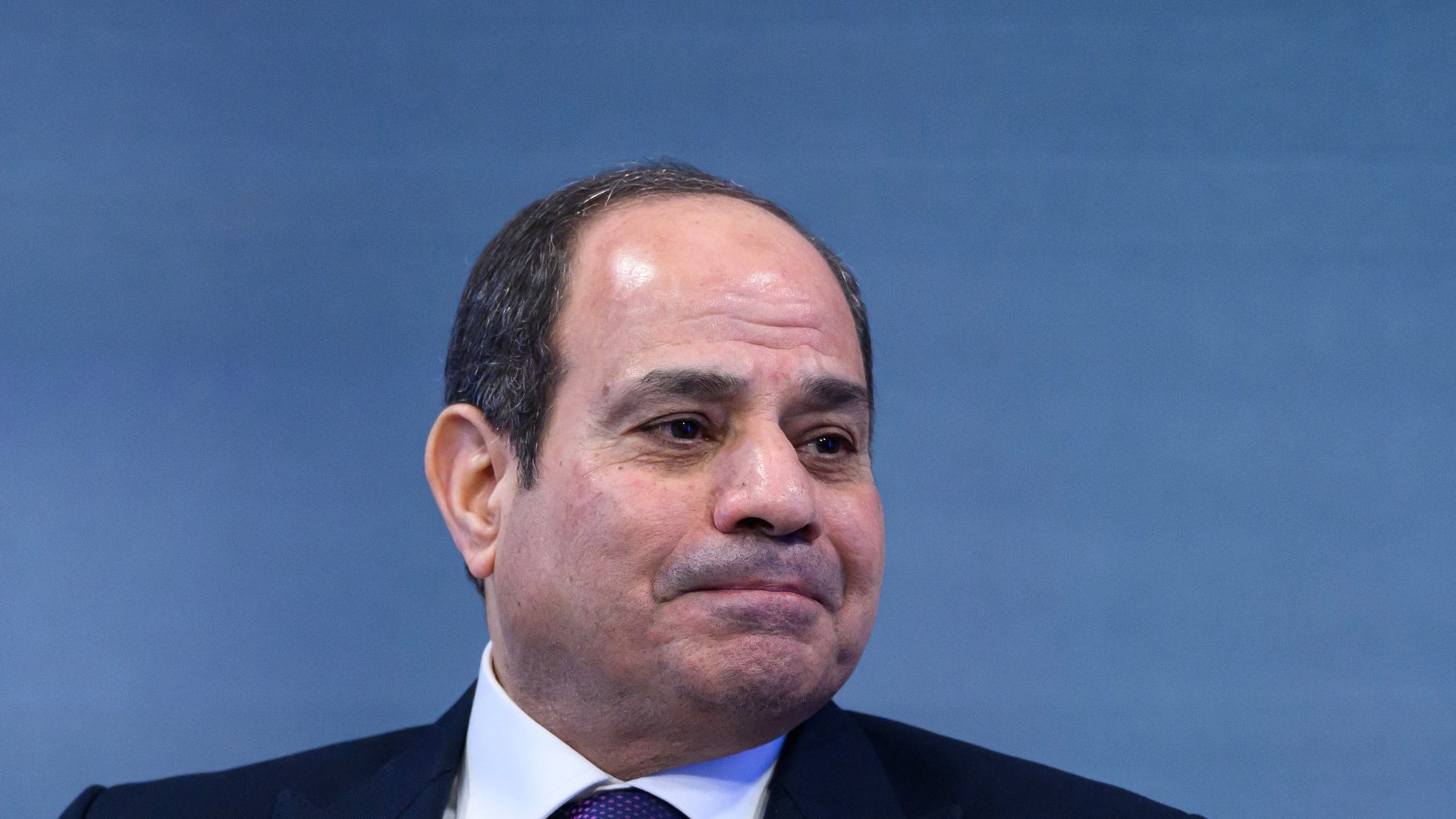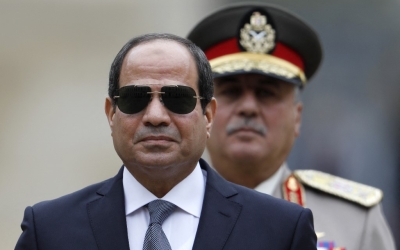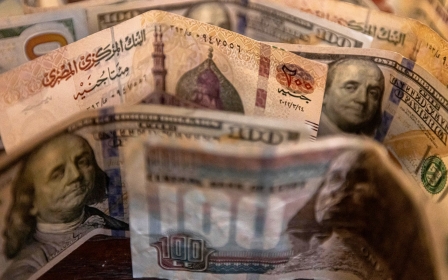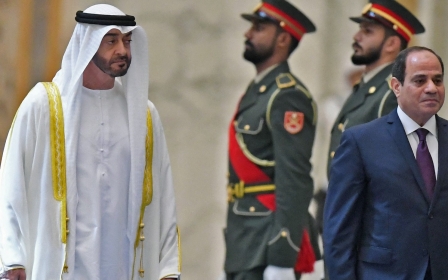How Sisi has accelerated Egypt's economic tailspin

For decades, the Egyptian economy has suffered from clear structural problems: high government expenditures that exceed revenues, an export-import deficit, and a state-controlled economy. Without addressing these structural weaknesses, short-term fiscal fixes will not prove helpful.
Though these issues seem to be economic in nature, they are, in fact, political in essence. They are the outcome of deliberate political choices that successive Egyptian regimes have made since the July 1952 takeover and the establishment of the Egyptian republic. Such political choices created what President Abdel Fattah el-Sisi himself calls a "run-down state".
Pledging to build a “New Republic”, Sisi has sought to absolve himself and the current military establishment of responsibility, while pointing to the failures of previous regimes - former presidents Gamal Abdel Nasser, Anwar Sadat and Hosni Mubarak - to put the economy on track.
For obvious political reasons, these leaders failed to fight corruption, reduce government spending, develop export-oriented industry, and pull the military out of the economy.
Economic development was considered a national security issue, where the state had to control the activities of the main economic sectors, production and distribution. It became the “provider” and the vehicle through which Egyptians were to be delivered.
Foreign and private investment was mistrusted, and import substitution was considered a patriotic strategy for development. The result was a chronic shortfall in revenues, a foreign currency shortage, and mounting debts to compensate for the budget deficit (external debt in 1970 was $2bn, while today it exceeds $150bn).
The July 1952 state has always been hostage to its wrong social alliances. Nasser could not continue to tailor policy to the interests of his power base, the middle and lower classes, and the mammoth bureaucracy; he simply ran out of resources. Sadat and Mubarak fell under the spell of state cronies, predatory corruption, and rentierism.
Wrong strategy
The lack of political will pushed the economy backward and failed to resolve the challenges faced by the Egyptian state in its relationships with the bureaucracy and the military; its capacity to generate resources and to fulfill the needs of society; and its regional and international relations.
Sisi is not faring any better, and possibly worse. His problematic political orientation has pushed the Egyptian economy into the abyss. He views himself as the decision-maker and the possessor of divine wisdom, describing himself as the “Sage of Philosophers”. Saying he has studied the state for decades, Sisi has adamantly urged Egyptians to listen to him only, and not to anyone else.
Sisi bears the responsibility for sending the Egyptian economy into a free-fall
Like his predecessors, Sisi has clearly adopted a mistaken strategy for development. It rests on building massive infrastructure to attract foreign investment, relying on foreign grants and loans; intimidating and marginalising domestic investors; increasing the role of the military in the economy to make it the country’s mega-contractor; increasing salaries and benefits for the military, police and judiciary; selling Egypt’s assets to Gulf states; and heavy taxation, which accounts for 83 percent of government revenues.
Most of these measures come at the expense of revenue-generating sectors, and were driven by political and not economic reasons. In short, Sisi wants to go down in Egyptian history as the builder of a new Egypt.
Drowning in debt
Sisi bears responsibility for sending the Egyptian economy into a free-fall and subjecting millions of people to economic and social hardships. His media pawns have advised Egyptians to eat chicken feet to adapt to tough economic conditions. Since 2016, Egypt has borrowed $20bn from the International Monetary Fund, thus becoming the IMF’s second-largest debtor after Argentina ($52bn).
Since Sisi took power, Gulf states have poured tens of billions of dollars into Egypt’s coffers. With no accountability, it is difficult to know where it went. Acknowledging that he does not believe in feasibility studies, Sisi has squandered the country’s resources on white elephants, such as the New Administrative Capital and opulent palaces.
In the process, Sisi has drowned the country in debt and lost the financial support of his Gulf donors, who recently put contingencies on extending additional loans - mainly, reducing the military’s influence over the economy, devaluing the Egyptian pound further to maintain a realistic rate, and appointing a cabinet of economic experts to manage reforms and rescue the economy.
International donors should follow suit and make their assistance to Sisi’s failing regime contingent on tangible structural, and not only monetary, reforms. They should tie aid and loans to specific measures that could jump-start the economy, such as overhauling tourism, curbing corruption, and respecting private property to reassure domestic investors.
In the long run, Egypt’s development strategy should prioritise agricultural and industrial manufacturing, and promote the service sector and an export-oriented economy.
Contrary to common perception, Egypt is a rich country with diverse natural resources and young human capital. Its curse is not its economy, but its leaders - the post-1952 military-political elite who have squandered its resources and mismanaged its economy.
The views expressed in this article belong to the author and do not necessarily reflect the editorial policy of Middle East Eye.
Middle East Eye propose une couverture et une analyse indépendantes et incomparables du Moyen-Orient, de l’Afrique du Nord et d’autres régions du monde. Pour en savoir plus sur la reprise de ce contenu et les frais qui s’appliquent, veuillez remplir ce formulaire [en anglais]. Pour en savoir plus sur MEE, cliquez ici [en anglais].






